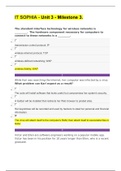AC2.2 Describe trial processes
Type of criminal offence
There are three types of criminal offences in terms of their seriousness and where they can
be tried. One type is indictable offences. These are serious crimes such as murder, treason
(crime against the goverment), rape and grievous bodily harm. Another type is summary
offences which involve less serious, but minor crimes. For example motoring offences and
assaults without injury. These types of offences are usually tried in court. The last offence is
triable either way offences, also known as ‘hybrid offences’ which include offences such as
theft, fraud, and burglary. These can be tried in either a magistrates’ court or Crown court
Pre-trial matters
Pre-trial matters consist of pre-trial reviews which deal with the points of law within a case,
and whether the evidence being used is admissible or inadmissible. There are two types of
pleas that can occur. The first is a guilty plea, this is where the magistrates hear evidence of
aggravating and mitigating factors, this is when one makes the offence more serious or less
serious. The magistrates then either pass the sentence immediately or adjourn the case for
reports before sentencing at a later date. More serious offences can be referred to the
Crown Court for them to sentence the offender. The second is a not guilty plea. This is when
magistrates make the informed decision about reports, bail or legal aid before the trial can
go ahead.
Bail
Bail is when an individual is allowed to be free until the next stages of their case takes place.
This bail can be conditional or unconditional, including reports and curfews. Conditional bail
is when the individual on bail has to follow specific agreements gave to them by magistrates.
This includes their residence, not contacting witnesses and not skipping curfew.
Unconditional bail is when there are no conditions for the defendant to abide by, besides
attending court on the given date. Due to all defendants by law presumed innocent until
proven guilty, Section 4 of the Bail Act 1976 makes a general presumption that everyone has
the right to bail.
Plea bargaining
Plea bargaining is an agreement between the prosecutor and defendant, and even in some
circumstances the judge, where the defendant agrees to plead guilty in return for a reduced
sentence when the defendant pleads guilty. There are three main types of plea bargaining:
charge bargaining, where the defendant pleads guilty to a less serious charge, and therefore
receives a lighter sentence. Count bargaining which is when the defendant pleads guilty to
one charge, in return for other charges to be dropped. The last is sentence bargaining,
where the defendant pleads guilty to the original charge against them, in return for a more
lenient sentence. Plea bargaining can be used to avoid a potentially lengthy trial. However,
some may say that unregulated plea bargaining can apply undue pressure to defendants
and undermine their rights to a fair trial. If court refused bail or the defendant breaches the
conditions they could potentially be remanded in custody until their trial. Legal aid is when
defendants have equal access to justice, regardless of a person’s wealth.
Criminal courts system







